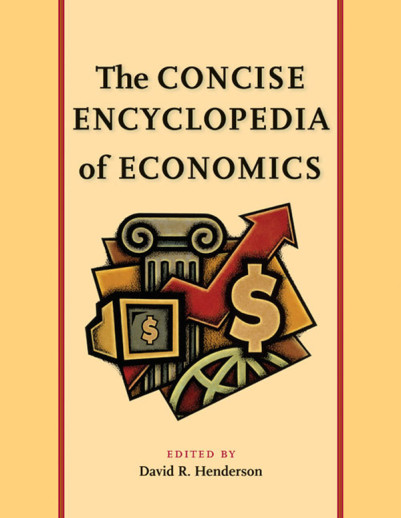We use cookies to make your experience better. To comply with the new e-Privacy directive, we need to ask for your consent to set the cookies. Learn more.
Concise Encyclopedia of Economics
SKU
018638
ISBN
9780865976665
Grade 9-AD
These icons are designed to help you quickly understand and learn important information about our products.
Teaching Method
Traditional
Teacher-centered curriculum commonly used in classrooms that may include a text, teacher manual, tests, etc.
Charlotte Mason
A methodology based on the work of a 19th century educator who maintained that children learn best from literature (Living Books), not textbooks.
Classical
A methodology based on the Latin Trivium (three stages of learning), including the grammar stage (memorization and facts), logic stage (critical thinking), and rhetoric stage (developing/defending ideas).
Unit Study
A thematic or topical approach centered around one topic that integrates multiple subject areas.
Montessori (Discovery)
A methodology based on the work of a 20th century educator that emphasizes student and sensory-driven discovery learning and real-life applications.
Other
Other methodologies
Religious Content
Secular
Contains content contrary to common Christian beliefs (i.e. evolution).
Neutral
Avoids religious or theoretical topics or presents multiple viewpoints without preference.
Christian/Religious
Faith-based or including instructional religious content.
Learning Modality
Auditory
Learns through listening, talking out loud or reading out loud.
Visual
Learns through seeing, prefers written instructions and visual materials.
Kinesthetic/Tactile (Hands-On)
Learns through moving, doing and touching.
Multi-Sensory
Curriculum that employ a variety of activities/components.
Presentation
Sequential
Curriculum progresses through well-defined learning objectives. Emphasizes mastery before moving to the next topic.
Spiral
Topics and concepts are repeated from level to level, adding more depth at each pass and connecting with review.
Conceptual/Topical
Focus is on the “why,” often with a unifying concept as well as specific skills; coverage may be broader.
Teacher Involvement
Low Teacher Involvement
Student-led materials; parent acts as a facilitator.
Medium Teacher Involvement
A mix of teacher-led time and independent student work.
High Teacher Involvement
Teacher-led lessons; may utilize discussions, hands-on activities and working together.
Additional Materials Required
No other materials needed
Everything you need is included.
Other Materials Required
There are additional required resources that are a separate purchase.
Other Materials Optional
There are additional resources mentioned or recommended but are not absolutely necessary.
Consumable
Consumable
Designed to be written in; not reusable.
Non-Consumable
Not designed to be written in; reusable.
Our Price
$34.00 $34.00 $26.50
Rainbow Savings: $7.50
Description
This scholarly compilation is truly a "Who's-Who" collection of the finest minds in the field of economics. With a stated goal to "communicate just how much economic analysis can teach us about the important issues we face as voters, as consumers, as employees, and as people who care about the world," this book does that and so much more! Alphabetically organized, the volume offers 168 articles on high-interest economic subjects covering a wide range of macro-and micro-economic topics including: advertising, agricultural subsidy programs, bankruptcy, the consumer price index economic freedom, distribution of income, economic freedom, entrepreneurship, financial regulation, government growth, minimum wages, pharmaceuticals, regulation, poverty in America, welfare and so forth. Biographies of noted economists, further reading recommendations and a detailed index complete this hefty encyclopedia from the Liberty Fund. Clearly written for the non-economists in all of us, you will find this an excellent resource to expand your understanding of the role of economics in today's society. PB. 637 pgs. ~Deanne
Details
| Product Format: | Paperback |
|---|---|
| Brand: | Liberty Fund |
| Author: | David R. Henderson |
| Grades: | 9-AD |
| ISBN: | 9780865976665 |
| Length in Inches: | 11 |
| Width in Inches: | 8.5 |
| Height in Inches: | 1.5 |
| Weight in Pounds: | 3.9 |
Videos
Reviews

